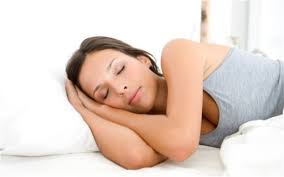At 54 years of age, I have noticed that my sleep patterns are significantly different than when I was  younger. So I decided to do some exploration on the latest sleep research and pass on my findings to our readers.
younger. So I decided to do some exploration on the latest sleep research and pass on my findings to our readers.
There is so much of interest and value that I am going to share the facts over the next 3 blog editions. There will be a couple of "sleep myths" at the end of each article – just to keep you awake!
Today's topic covers general information on sleep as provided by the National Institute of Neurological Disorders and Stroke; a branch of the National Institute of Health.
"The amount of sleep each person needs depends on many factors, including age. Infants generally require about 16 hours a day, while teenagers need about 9 hours on average. For most adults, 7 to 8 hours a night appears to be the best amount of sleep, although some people may need as few as 5 hours or as many as 10 hours of sleep each day. Women in the first 3 months of pregnancy often need several more hours of sleep than usual. The amount of sleep a person needs also increases if he or she has been deprived of sleep in previous days. Getting too little sleep creates a "sleep debt," which is much like being overdrawn at a bank. Eventually, your body will demand that the debt be repaid. We don't seem to adapt to getting less sleep than we need; while we may get used to a sleep-depriving schedule, our judgment, reaction time, and other functions are still impaired.
People tend to sleep more lightly and for shorter time spans as they get older, although they generally need about the same amount of sleep as they needed in early adulthood. About half of all people over 65 have frequent sleeping problems, such as insomnia, and deep sleep stages in many elderly people often become very short or stop completely. This change may be a normal part of aging, or it may result from medical problems that are common in elderly people and from the medications and other treatments for those problems.
Experts say that if you feel drowsy during the day, even during boring activities, you haven't had enough sleep. If you routinely fall asleep within 5 minutes of lying down, you probably have severe sleep deprivation, possibly even a sleep disorder. Micro-sleeps, or very brief episodes of sleep in an otherwise awake person, are another mark of sleep deprivation. In many cases, people are not aware that they are experiencing micro-sleeps. The widespread practice of "burning the candle at both ends" in western industrialized societies has created so much sleep deprivation that what is really abnormal sleepiness is now almost the norm.
Many studies make it clear that sleep deprivation is dangerous….Driver fatigue is responsible for an estimated 100,000 motor vehicle accidents and 1500 deaths each year, according to the National Highway Traffic Safety Administration. Since drowsiness is the brain's last step before falling asleep, driving while drowsy can – and often does – lead to disaster. The National Sleep Foundation says that if you have trouble keeping your eyes focused, if you can't stop yawning, or if you can't remember driving the last few miles, you are probably too drowsy to drive safely."
As promised, to end this edition, I have included 2 Myths about sleep from WedMD:
1. To function best, you need to get eight hours. There's nothing magic about that number. Everyone has different sleep needs, and you'll know you're getting enough when you don't feel like nodding off in a boring situation in the afternoon, says New York University psychologist Joyce Walsleben, Ph.D., co-author of A Woman's Guide to Sleep .
2. If you can get it, more sleep is always healthier. You wish. Some studies have found that people who slept more than eight hours a night died younger than people who got between six and eight hours. What scientists don't know yet: Whether sleeping longer causes poor health or is a symptom of it, says Najib Ayas, M.D., MPH, assistant professor of medicine at the University of British Columbia. Long sleepers may suffer from problems such as sleep apnea, depression, or uncontrolled diabetes that make them spend more time in bed.
 Editor's Note: This article was written by Dr. David Mashburn. Dave is a Clinical and Consulting Psychologist, a Partner at Tidemark, Inc. and a regular contributor to WorkPuzzle.
Editor's Note: This article was written by Dr. David Mashburn. Dave is a Clinical and Consulting Psychologist, a Partner at Tidemark, Inc. and a regular contributor to WorkPuzzle.

